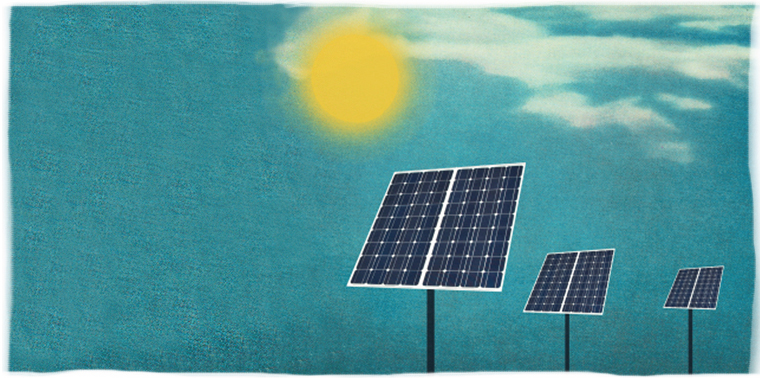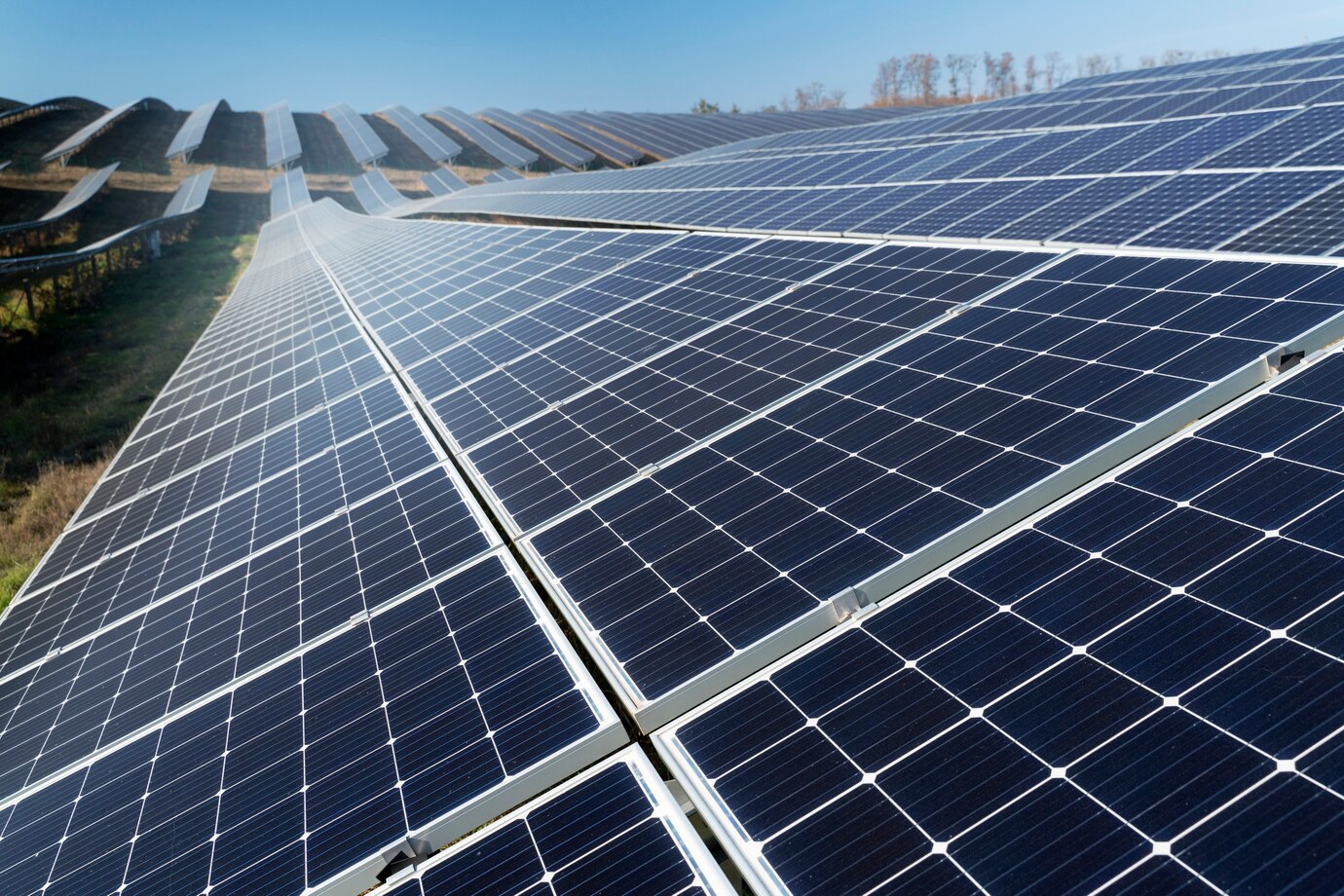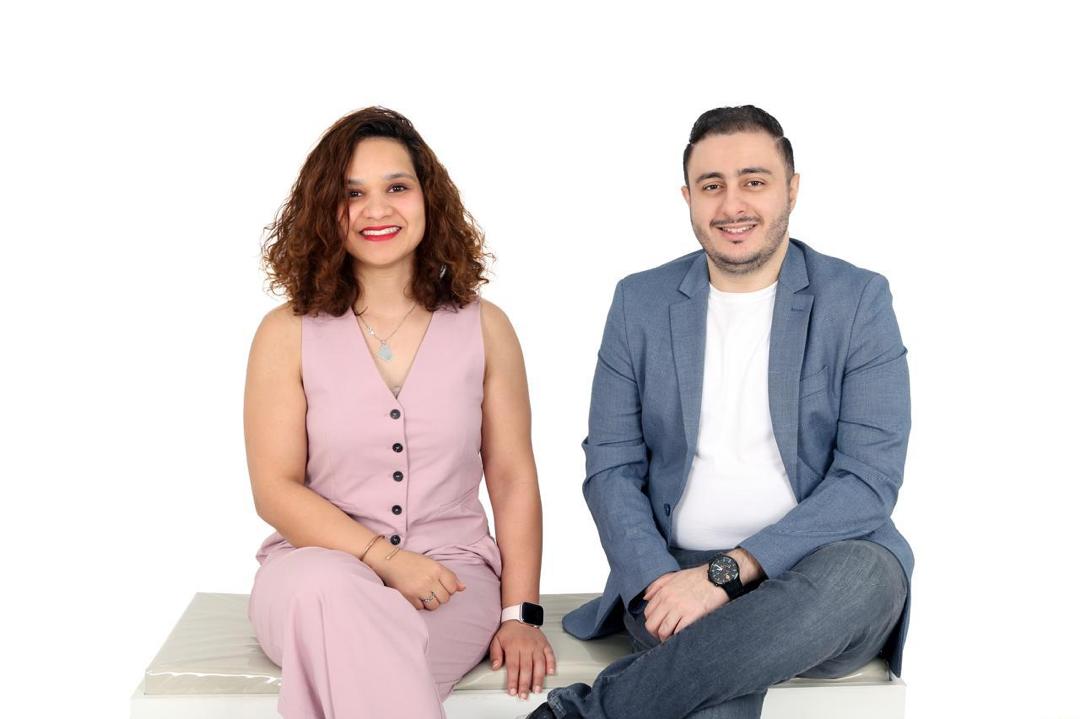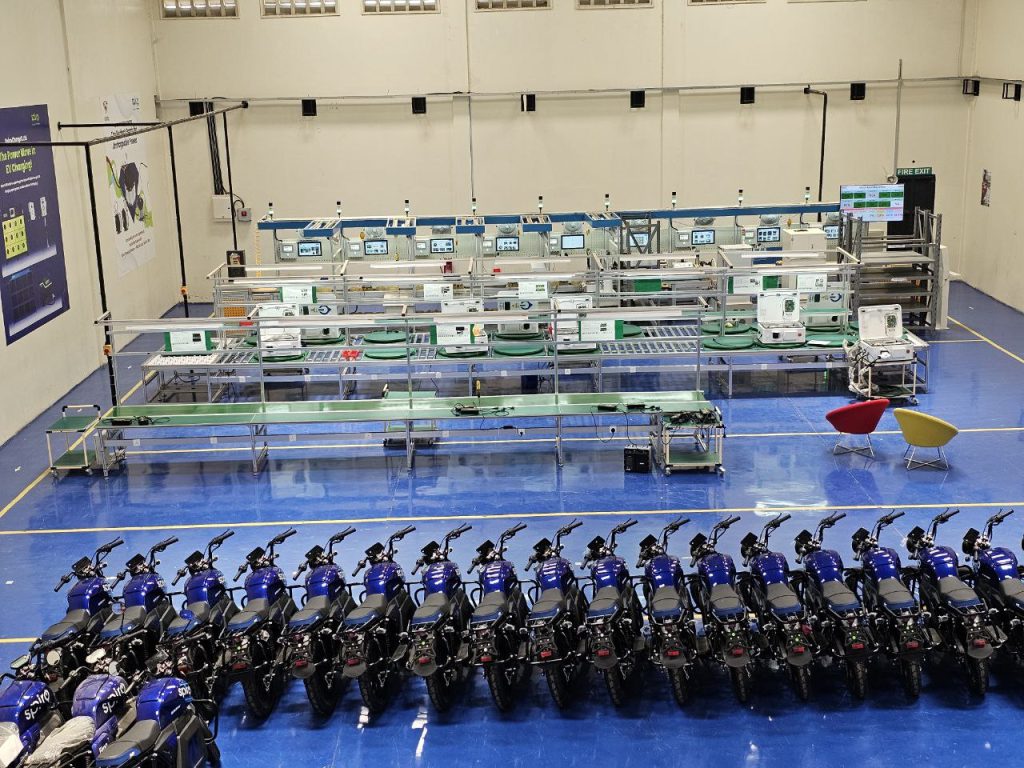Not a lot of people would consider the idea of using cryptocurrency to buy clean energy a possibility. But it’s a model that Lagos-based OneWattSolar (OWS) has used to provide Nigerians with access to electricity for more than two years.
The clean energy company allows its customers to pay for solar energy using blockchain tokens. Users also don’t have to pay for the solar system infrastructure, as it is funded through financial backers.
After installation, OWS uses technologies such as Artificial Intelligence (AI) and the Internet of Things (IoT) to facilitate services like payments and monitoring.
How does it all work together? TechCabal caught up with the company’s co-founder and COO, Jubril Adeojo, to find out.
An innovative concept with many layers
Like the typical solar company, OneWattSolar (OWS) supplies and distributes panels for private individuals and residential estates in Nigeria. What makes OWS different is the payment system it offers to customers.
When using OWS’s clean energy solution, customers do not have to pay for the configuration of the solar panel system, which is funded by financiers. Instead, they purchase tokens called “green coins” using naira to pay for the electricity supplied. The tokens are built on the blockchain platform, Ethereum.
The solar configuration is also fitted with an internet-enabled router that automatically collects data on energy consumption to ensure that customers pay exactly what they use – charged monthly on a pay-as-you-go basis. Likewise, it will also alert OWS to any potential problems with the systems in real-time.
Using blockchain for its solar solution helps OWS enable transparency between all stakeholders as well as reduce costs between all parties. “With this system, customers are charged for exactly what they use,” said Adeojo.
On a traditional service using fossil fuels, energy usage is nearly ₦70 ($0.20) per kilowatt-hour (kWh) in Nigeria. However, the blockchain system costs 50% less ($0.10) compared to diesel, as the expensive maintenance costs of generators are avoided.
In addition to the blockchain tech, OneWattSolar has IoT embedded into its inverter and smart meters that allow for automated switchover of the system, even remotely. Meanwhile, the AI on its platform enables customers to set commands for anything they want to be alerted about.
“For example, if someone else is using your washing machine, the owner of that house will know with the help of our AI-powered platform, which sends an alert. This enables the customer to effectively manage energy consumption. Also, appliances can be switched on/off automatically and remotely. So even while you’re away, I can switch off my AC at home,” Adeojo said.
From just another solar company to “Uber” for energy services
OWS hasn’t always been the company it is today, Adeojo explained. It’s part of GoSolar Africa, a renewable energy company that’s been in operation since 2010.
“We’ve been in business for more than ten years. We started out selling solar systems to homes and businesses that could afford them upfront as well as pioneered a number of mini-grids in partnership with international agencies.”
After operating for a decade, the company’s founders decided to pivot into the off-grid commercial and industrial (C&I) solar space starting with a pilot project for a commercial bank.
On the back of the successful execution of its debut commercial project, the company’s founders started working on what Adeojo calls the “Uber model” for energy services using the name OneWattSolar, which was eventually launched in January 2019.
Since then, everything has changed.
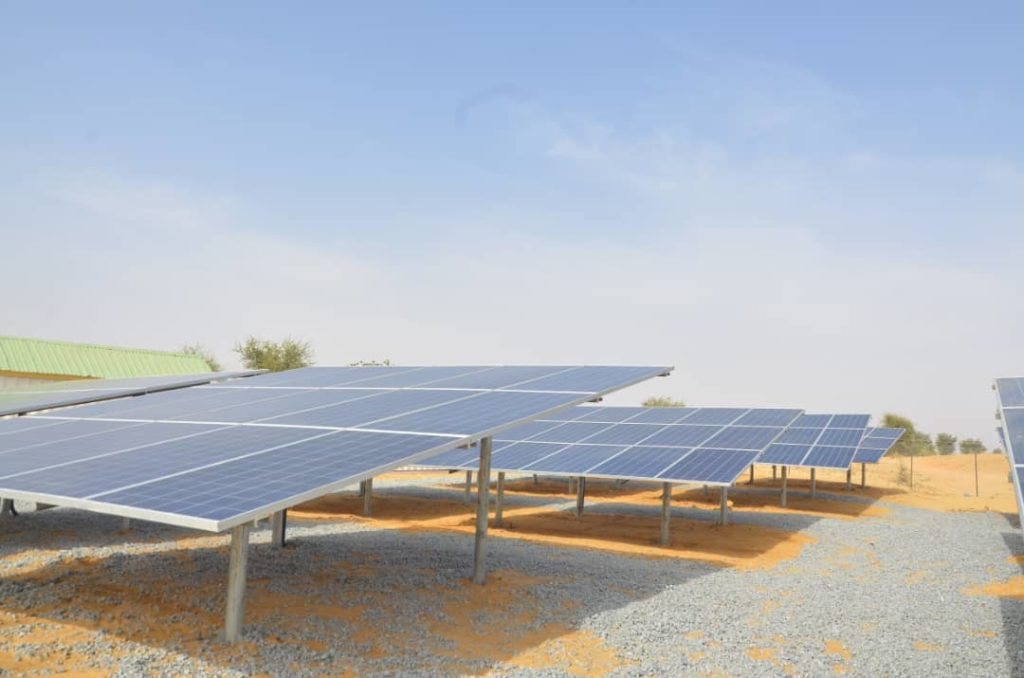
OWS now offers on-demand energy-as-a-service (EaaS) solutions to individual and corporate clients in partnership with solar companies.
The startup provides hardware such as solar panels and inverters and then contracts one of its aggregated companies that carry out installation and maintenance for clients. The latter earn from the project as long as the installed hardware is in use.
Potential customers can sign up and make a reservation on the OWS platform, which has an inbuilt blockchain-powered payment system and wallet.
Although Adeojo calls it the “Uber model”, the company does not exactly match clients with installers. Instead, OWS operates like a consumer-facing contractor (and supplier of hardware) but with a tech-enabled platform.
“We told ourselves to re-launch but not as a solar company competing with other solar companies. We decided to adopt the Uber model and come out as a tech company opening up the market for other players and as Amazon did with bookstores.” Adeojo said.
In addition to solar companies that install hardware, there are also “power brokers” that source for commercial clients.
In between this multifaceted business model, Adeojo claims that OWS creates jobs for young engineers who can also be part of and earn from the installation and maintenance process.
“We also have over 1,000 young people – graduates and undergraduates – that work with the solar companies and women make up 10% of the community at the moment.”
The big vision
Since its launch, OneWattSolar has installed 50 megawatts systems that are fully operational.
The company’s vision 2030 is to deploy 14,000 megawatts of off-grid renewable energy across sub-Saharan Africa starting with Nigeria, where it has partnered with many solar companies and installers.
OWS recently issued the first series of its ₦10 Billion ($24.33 million) Green Bond in Nigeria. The issuance comprises a ₦2 Billion ($4.9 million) 7-year Green Bond Issue and a ₦1 Billion ($2.4 million) 7-year Green Sukuk Issue.
“This issuance has enabled us to commercially roll out our two flagship products – CHI OMA being the IoT-enabled Digital Assets & Hardware Technology, and AMINA being the Advanced Artificial Intelligence Software Technology,” Adeojo said.
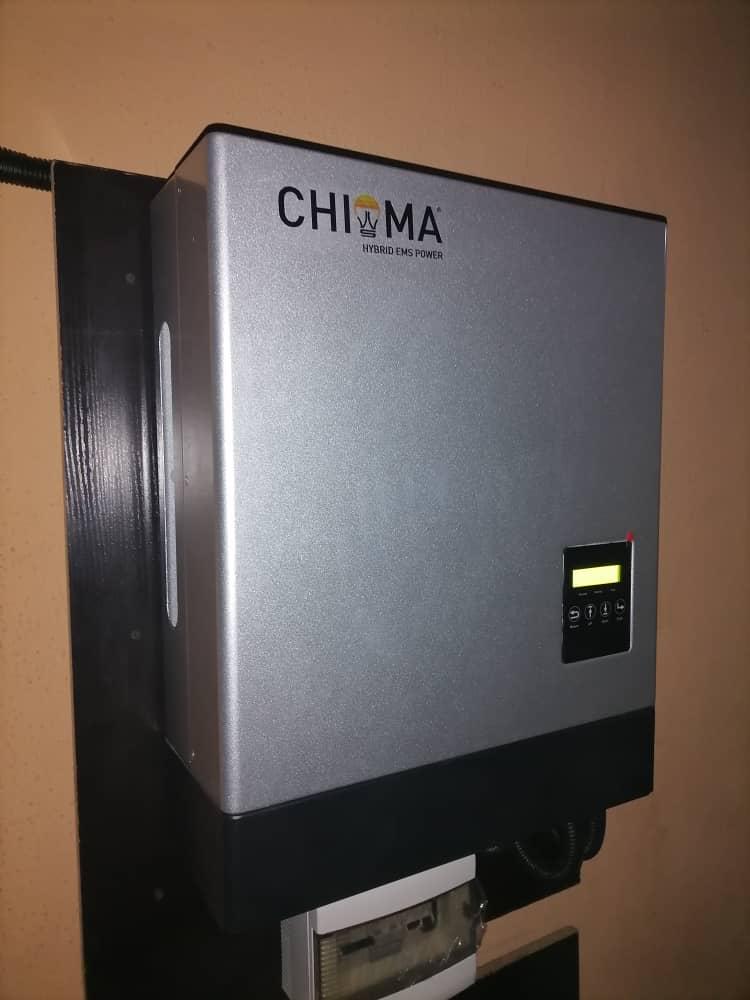
The bond issuance is the first of its kind in several categories. In Africa, it is the first corporate green bond for off-grid renewable energy projects, corporate green Sukuk, and corporate joint green bond and green Sukuk. Globally, it is just the 13th green Sukuk – a sharia-compliant financial instrument that is like bonds and used in Islamic finance.
Issuing bonds isn’t common practice among startups but Adeojo explains that it is a “logical move” as the kind of OWS projects requires long-term funding. “The issuance will also attract institutional investors interested in investing in the green economy.”
Despite being a startup, OWS qualified for the bond issuance due to a number of reasons Adeojo cited: a “bankable” business model, track record in Nigeria’s renewable energy space, sound corporate governance, a strong and experienced team, and several international advisers that offer technical assistance.
The fresh capital injection should help the company power its ambition of connecting up to a million homes across the continent that are without electricity.
“As a tech company, we look forward to developing and rolling out new customer-centric products, alongside the issuance of more green bonds and Sukuks, as we use this issuance to commence the first step of our journey of a million miles,” Adeojo said.
If you enjoyed reading this article, please share in your WhatsApp groups and Telegram channels.









